 With Life on Mars – and the journey of time-travelling cop Sam Tyler – neatly wrapped up after two stellar seasons, the existence of sequel series Ashes to Ashes clearly owes to one thing and one thing only: Detective Chief Inspector Gene Hunt.
With Life on Mars – and the journey of time-travelling cop Sam Tyler – neatly wrapped up after two stellar seasons, the existence of sequel series Ashes to Ashes clearly owes to one thing and one thing only: Detective Chief Inspector Gene Hunt.
Philip Glenister's brutish, scene-stealing cop is back front and centre in Ashes to Ashes alongside Life on Mars sidekicks Ray Carling (Dean Andrews) and Chris Skelton (Marshall Lancaster), who have left Manchester to tackle the criminal scum of London. The trio are brought back to life when police psychologist Alex Drake (Spooks' Keeley Hawes) awakes in 1981 after being shot during the pursuit of a criminal in 2008. Like Tyler before her, Drake finds herself trapped in the past and working with Hunt and his team.
By the time Ashes to Ashes' first season wrapped up on ABC1 last week, it had more or less escaped the vast shadow of Life on Mars. The season's central arc, which saw Drake fighting to prevent the death of her parents in a car bombing, was engaging stuff, and her urge to return to her daughter in the present day meant Drake's even more determined to return to the present day than Tyler was.
Unfortunately, the show stumbles in overcoming the expectations attached to a sequel series. The transition from Life on Mars' gritty depiction of seventies Britain to the glitz and glamour of the 1980s in Ashes to Ashes is accompanied by a jarring tonal shift; at times, Ashes to Ashes borders on a parody of its predecessor. The ingredients are all there (the Ford Cortina is replaced by an Audi Quattro, the pub by an Italian restaurant and the Test Card girl by a very creepy clown) but there's an obvious sense of self-awareness to Ashes to Ashes that was lacking in the original series. While it may be befitting to Hawes' character, who, having read Sam Tyler's files, is convinced that her awakening in 1981 is all in her head, the jokier tone plays contrary Life on Mars' engaging conviction to its conceit.
(Curiously, the lighter Ashes to Ashes would probably have leant itself better to a US adaptation than Life on Mars did, particularly given the in-vogue setting of the 1980s. It also wouldn't have given US producers the ammunition they needed to make a God-awful literal twist in the final episode.)
Glenister still lends great gusto to Gene Hunt who is now aware that his old school policing methods are soon to be a thing of the past (it's ripe material only hinted at in series one – here's hoping it'll be further explored in future episodes). However, Hunt, like Skelton and Carling (sporting an ace perm), seem to be painted in far broader strokes than they were in Life on Mars – witness the bombastic introduction of Gene Hunt in episode one.
Hawes, meanwhile, eventually comes into her own as Ashes to Ashes ultimately does. Her constant (and occasionally annoying) narration in early episodes makes her a less endearing protagonist than John Simm's instantly likeable Tyler, but Drake's tetchy sparring with Hunt becomes a joy to behold. She also develops an intriguing relationship with Montserrat Lombard's Sharon Granger toward the season's end.
It's difficult to assess the first season of Ashes to Ashes as an independent entity (the show even takes its title from another David Bowie song, just one of dozens of funky '80s tunes to feature), and it was always going to struggle to recapture the brilliance and originality of Life on Mars. However, there's still life left in the show's fish-out-of-water premise and with that awkward transitional phase over, Ashes to Ashes should be well placed to develop an identity of its own as the second season begins tonight.
 It may be the Bond fan's whipping boy, but I can't help but think A View to a Kill scrapes by on charm alone.
It may be the Bond fan's whipping boy, but I can't help but think A View to a Kill scrapes by on charm alone.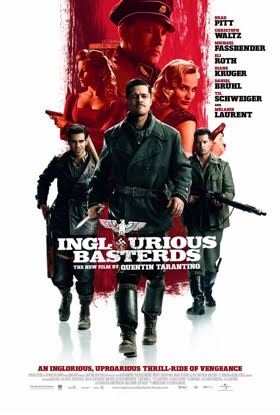 It was worth the wait.
It was worth the wait. The phenomenon of the difficult second album is alive and kicking in Brüno, Sacha Baron Cohen's follow-up to the brilliant (and brilliantly titled)
The phenomenon of the difficult second album is alive and kicking in Brüno, Sacha Baron Cohen's follow-up to the brilliant (and brilliantly titled)  There's something oddly unengaging about Michael Mann's Public Enemies that keeps the film from achieving greatness. Instead, it's merely good. With the director of Heat and Collateral (we'll overlook that sketchy Miami Vice remake) at the helm, it's disappointing that this tale of John Dillinger, one of history's most infamous criminals, isn't the bona fide classic it had the potential to be.
There's something oddly unengaging about Michael Mann's Public Enemies that keeps the film from achieving greatness. Instead, it's merely good. With the director of Heat and Collateral (we'll overlook that sketchy Miami Vice remake) at the helm, it's disappointing that this tale of John Dillinger, one of history's most infamous criminals, isn't the bona fide classic it had the potential to be. For those of you wondering whether the experience of enduring
For those of you wondering whether the experience of enduring  Up until last week, I thought I understood popular culture. I knew reality television would never produce anyone but absolute cretins. I believed celebrity gossip to be a driving force behind the spread of mankind's stupidity. And I accepted no film would ever bludgeon my senses like 2005's Stealth, the Jamie Foxx actioner about a talking plane that turns evil.
Up until last week, I thought I understood popular culture. I knew reality television would never produce anyone but absolute cretins. I believed celebrity gossip to be a driving force behind the spread of mankind's stupidity. And I accepted no film would ever bludgeon my senses like 2005's Stealth, the Jamie Foxx actioner about a talking plane that turns evil.
 They say you shouldn't judge book by its cover, but the sleek, polished, retro UK dust jacket of Jeremy Duns' debut thriller Free Agent perfectly captures the superb novel lying within.
They say you shouldn't judge book by its cover, but the sleek, polished, retro UK dust jacket of Jeremy Duns' debut thriller Free Agent perfectly captures the superb novel lying within.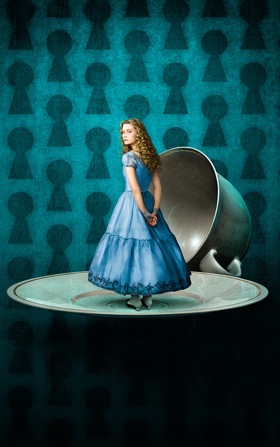
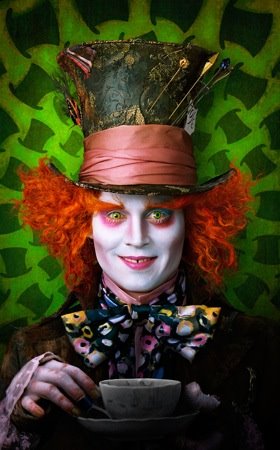



 Yes, folks, it's
Yes, folks, it's  In the wake of the bland and forgettable
In the wake of the bland and forgettable 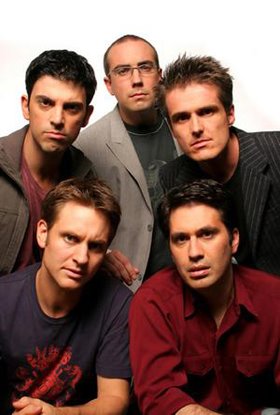 Satirical comedy team The Chaser have
Satirical comedy team The Chaser have  A couple of months back, I
A couple of months back, I  I was anticipating a leisurely Saturday afternoon at the cinema. Having left home in good time, I drove to Westfield Bondi Junction to discover utter chaos in the carpark. After twenty minutes of dizzying circling in a desperate attempt to find a parking space, I looked at my watch and questioned whether I would ever make it to see X-Men Origins: Wolverine.
I was anticipating a leisurely Saturday afternoon at the cinema. Having left home in good time, I drove to Westfield Bondi Junction to discover utter chaos in the carpark. After twenty minutes of dizzying circling in a desperate attempt to find a parking space, I looked at my watch and questioned whether I would ever make it to see X-Men Origins: Wolverine. The scent of fresh popcorn wafts through the cinema as a throng of people march their way across the unnaturally sticky floor before getting settled into their seats and noisily wrestling with bags of M&Ms. Everyone's wallets are (a frankly absurd) $16.50 lighter, but no-one is complaining. It could only mean one thing: Summer Blockbuster Season™ is here!
The scent of fresh popcorn wafts through the cinema as a throng of people march their way across the unnaturally sticky floor before getting settled into their seats and noisily wrestling with bags of M&Ms. Everyone's wallets are (a frankly absurd) $16.50 lighter, but no-one is complaining. It could only mean one thing: Summer Blockbuster Season™ is here!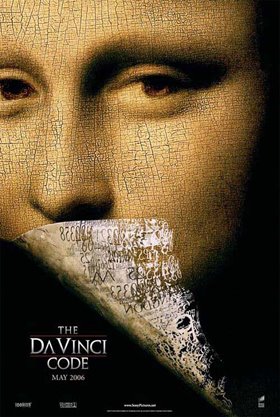 In
In 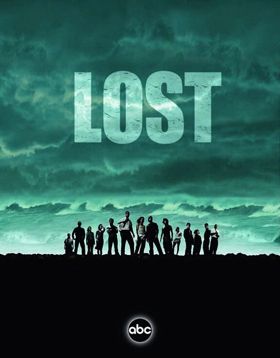 To celebrate Lost's 100th episode – last week's terrific Faraday-centric "The Variable" – I briefly entertained the idea of writing a post entitled "100 reasons why you and everyone you know and everyone they know should watch Lost".
To celebrate Lost's 100th episode – last week's terrific Faraday-centric "The Variable" – I briefly entertained the idea of writing a post entitled "100 reasons why you and everyone you know and everyone they know should watch Lost". Despite being a bit of a James Bond geek, I have to confess to having not seen most of the films in several years. To be fair, I've been living overseas for a few years, far away from the massive 20-film DVD box set that weighs down the fourth shelf of my new bookcase. But perhaps most crucially, since the arrival of Daniel Craig's superb 007, it's tough to settle for anything less.
Despite being a bit of a James Bond geek, I have to confess to having not seen most of the films in several years. To be fair, I've been living overseas for a few years, far away from the massive 20-film DVD box set that weighs down the fourth shelf of my new bookcase. But perhaps most crucially, since the arrival of Daniel Craig's superb 007, it's tough to settle for anything less. A twist can make or break a film. The success of an entire movie can hang on the employment of this simple but overused plot device. It's incredibly difficult to pull off a twist that not only blindsides the audience, but also makes narrative sense. In short, a truly successful twist is a rare occurrence.
A twist can make or break a film. The success of an entire movie can hang on the employment of this simple but overused plot device. It's incredibly difficult to pull off a twist that not only blindsides the audience, but also makes narrative sense. In short, a truly successful twist is a rare occurrence.
 I'm not sure if I'm alone on this, but I always tend to associate (mildly but consciously) the book I'm reading with where I obtained it. While second-hand bookstores are chock-full of tomes, intriguingly from God-knows-where, even brand new books can have a story behind them which will often linger in my mind as I read them. I could probably tell you where each of the novels on my bookshelf have come from (many from the other side of the globe), but Hans Heinrich Ziemann's
I'm not sure if I'm alone on this, but I always tend to associate (mildly but consciously) the book I'm reading with where I obtained it. While second-hand bookstores are chock-full of tomes, intriguingly from God-knows-where, even brand new books can have a story behind them which will often linger in my mind as I read them. I could probably tell you where each of the novels on my bookshelf have come from (many from the other side of the globe), but Hans Heinrich Ziemann's